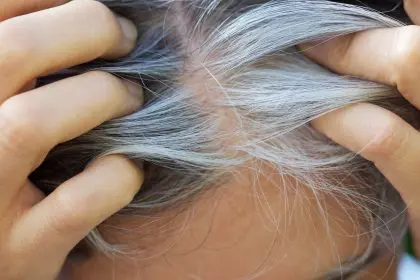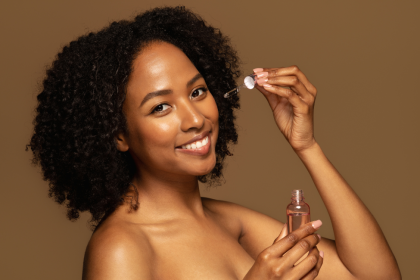
The pursuit of healthy, lustrous hair has become a near-universal goal, driving millions to experiment with biotin supplements in hopes of unlocking the secret to stronger, shinier strands. This growing trend has fueled a billion-dollar industry, with influencers, celebrities, and wellness experts promoting biotin as the ultimate solution to hair woes. However, amidst the marketing hype and social media buzz, it’s essential to separate fact from fiction and understand the science behind this popular vitamin to make informed decisions about its potential benefits.
Understanding biotin’s fundamental role
Biotin, also known as vitamin B7, plays a crucial role in the body’s metabolic processes, making it an essential nutrient for overall health. It is a water-soluble vitamin that helps convert carbohydrates, fats, and proteins into energy. Biotin is particularly important for the synthesis of keratin, the primary protein that forms the structure of hair, skin, and nails. While the body can naturally produce some biotin through gut bacteria, the majority of the vitamin comes from dietary sources such as eggs, nuts, and leafy greens.
The science of hair health
Hair health is the result of a complex interaction of genetics, diet, lifestyle, and environmental factors. Biotin’s role in hair growth primarily centers around protein synthesis and cellular energy production. It is involved in the creation of keratin, which helps form the hair shaft, contributing to hair strength and structure. Research has shown that biotin can improve hair strength and prevent brittleness in people with biotin deficiency. However, biotin’s direct impact on hair growth in individuals with normal levels of biotin remains a subject of debate, as scientific evidence is inconclusive.
Debunking common myths
A major misconception about biotin is that it can accelerate hair growth for everyone. In reality, scientific studies have found that biotin supplementation primarily benefits those with biotin deficiency. Individuals with healthy biotin levels do not necessarily experience improved hair growth from supplementation. While biotin deficiency can lead to thinning hair, brittle nails, and skin rashes, these issues are rare, and for the majority of people, biotin supplementation offers little to no benefit for hair growth.
Signs of genuine deficiency
True biotin deficiency is relatively uncommon but can have significant effects on hair health. Some of the key indicators of deficiency include:
Hair changes: People with biotin deficiency may experience noticeable hair thinning or changes in hair texture, such as increased brittleness or dullness.
Skin manifestations: Biotin deficiency can cause rashes, often around body openings like the eyes, nose, and mouth.
Neurological indicators: Fatigue, mood swings, and other neurological symptoms may appear in those with low biotin levels.
Nail abnormalities: Brittle, cracked, or splitting nails can also be a sign of biotin deficiency.
Risk factors and special populations
Certain groups of people are at an increased risk for biotin deficiency. These include:
Pregnant and breastfeeding individuals: Biotin requirements may increase during pregnancy and breastfeeding, putting some women at risk for deficiency.
People with genetic conditions affecting biotin metabolism: Certain metabolic disorders can impair the body’s ability to process biotin.
Those following restrictive diets: Individuals on very low-carb or vegan diets may have limited access to biotin-rich foods, increasing the risk of deficiency.
Individuals taking certain medications: Some medications, such as anticonvulsants, can interfere with biotin absorption and metabolism.
Evidence-based supplementation
For those with a confirmed biotin deficiency, supplementation can be beneficial. Research suggests that biotin supplementation typically shows effects after three to six months of consistent use. The optimal dosage of biotin varies depending on individual needs and health conditions. Many people opt for combination supplements that include biotin along with other vitamins and minerals to support overall hair health.
When choosing a biotin supplement, quality and purity matter. It’s essential to select products that are certified for purity and have undergone testing for contaminants. Healthcare professionals often recommend starting with food-based sources of biotin before considering supplements to ensure balanced nutrient intake.
Professional guidance for supplementation
Before deciding to supplement with biotin, it’s important to consult a healthcare provider, especially if you suspect a deficiency. Medical professionals can offer guidance on:
Starting with food-based sources: Eating biotin-rich foods, such as eggs, nuts, and leafy greens, can help maintain healthy levels of the vitamin.
Monitoring for medication interactions: Biotin supplements can interact with certain medications, so it’s important to discuss potential interactions with a healthcare provider.
Documenting baseline hair health: If considering biotin supplements, it can be helpful to document the current state of your hair health for comparison later.
Following recommended dosage: Professional advice can help ensure you are taking an appropriate dosage of biotin.
Comprehensive health assessments: Healthcare providers may suggest testing for other nutrient deficiencies to determine if biotin supplementation is necessary.
Dietary sources and optimization
While supplements are widely available, natural sources of biotin should be prioritized whenever possible. These food sources not only provide biotin but also offer other essential nutrients for overall health:
Egg yolks: A concentrated source of biotin, eggs can help boost your biotin levels naturally.
Nuts and seeds: In addition to biotin, nuts and seeds are rich in beneficial fatty acids that support hair and skin health.
Lean proteins: Foods like chicken and fish help build and maintain strong hair and nails, with biotin acting as a supportive nutrient.
Leafy greens: Vegetables such as spinach and kale provide a range of vitamins and minerals that contribute to healthy hair growth.
Safety considerations and interactions
Biotin is generally considered safe for most people, but there are a few important considerations. High doses of biotin can interfere with laboratory test results, especially tests for thyroid function. It’s also essential to be cautious when using biotin supplements alongside medications, as some drugs can affect biotin absorption. Always opt for high-quality supplements from reputable brands to ensure purity and effectiveness.
Future perspectives
Emerging research into biotin’s role in hair health continues to expand our understanding. Studies are investigating:
Genetic factors affecting biotin metabolism: Personalized approaches to biotin supplementation may become more common as we learn how genetics influence biotin absorption.
Synergistic effects with other nutrients: Researchers are exploring how biotin interacts with other vitamins and minerals to improve overall hair health.
Novel delivery mechanisms: Innovations in supplement formulations, such as topical applications, could enhance the absorption and effectiveness of biotin.
Personalized supplementation approaches: As our understanding of biotin deepens, personalized health strategies may emerge to help individuals optimize their nutrient intake.
Making informed decisions
When considering biotin supplementation, it’s crucial to evaluate personal health status and determine whether a deficiency exists. Consulting with a healthcare provider and addressing any potential nutritional gaps can guide a more informed decision about supplementation. Remember, while biotin can play a role in maintaining hair health, it is not a magic solution for everyone. Understanding the science behind biotin will ensure that you make the best choice for your hair health journey.














